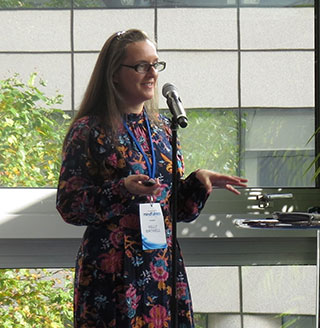Outstanding Early Career Researchers Awards 2025: Meet the winners - Dr Kelly Birtwell
Publication date: 09 May 2025
What is your main area of research interest, and how did this interest develop?
By background I am a counsellor, mindfulness teacher and a chartered psychologist. My research focuses on two main areas: mindfulness for underserved groups, and the health and wellbeing of autistic adults. My aim is to improve access to healthcare for people who are currently underserved by research and practice.
The most interesting aspect of my work is meeting with public contributors, autistic project advisors and other stakeholders to shape the research and discuss the findings. This input is vital to ensure the research is conducted in a way that is accessible to participants and to ensure it focuses on the questions and topics that matter most to people. I learn a lot from these rich conversations, and I enjoy being challenged in a friendly, supportive way.
What does your research involve, what challenges presented themselves during the research, and how did you overcome them?
My work is often exploratory, focusing on areas where there has been little prior research. Bespoke online surveys, qualitative and creative methods (e.g. ‘INDIGO’ developed during my PhD), are ideal for this work. I also use realist approaches which are particularly well-suited for handling complexity and understanding how interventions or healthcare pathways work (or not) for whom and in what contexts.
There are many barriers for people to take part in research, and public contributors have helped my team to develop inclusive practices that support people to be involved. For example, inviting autistic people who are non-speaking to participate in Zoom interviews using the chat function rather than restricting participation to speaking, which would have meant they were excluded.
Good quality research and meaningful patient and public involvement take time, and can involve a lot of admin. This can be challenging so it is important to cost in sufficient staff time on grants to support this important work, and for funders to understand how much time it takes to do this work well.
What will the RCGP/SAPC Early Career Award enable you to do?
The award will support an in-person professional development visit with my collaborator Professor Stewart Mercer at the University of Edinburgh. It will also help me to build connections with Deep End GP practices and share my research findings to support translation of my research into clinical practice. I will deepen my understanding of the mental health needs of patients, the broader challenges and complexities of their lives, and the current practice and resources available within Deep End practices. This will help to inform a further funding application to continue my research on mindfulness for underserved groups.
Thank you for your feedback. Your response will help improve this page.

